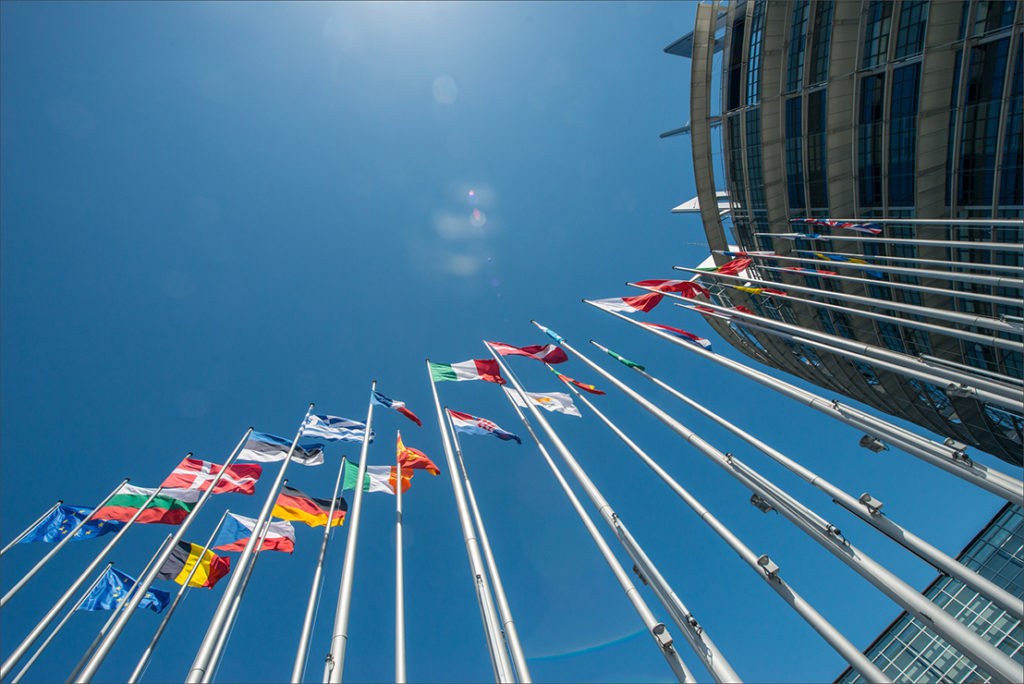The European debate over coronavirus response is not geographical but ideological. Rather than a binary cleavage it involves three different and competing views of how Europe should address current and future challenges.
In the aftermath of the coronavirus crisis, many policy-makers and political observers have resorted to the traditional north-south divide and its related vocabulary to frame EU member states’ disagreements.
Following the virtual European council held in late March, Dutch Prime Minister Mark Rutte highlighted differences of opinion between “a number of more northern and a number of southern countries along the known dividing lines”.
Similarly, in a short op-ed the former European Commissioner and Prime Minister of Italy, Mario Monti framed the debate on EU's coronavirus response by depicting two geographical camps divided by profound issues. “Europe is divided and it’s north versus south, as in the 2012 financial crisis.”
In Monti’s view, only understanding the other’s ideas and positions and avoiding stigmatisation in national debates can overcome this geographical divide.
Perhaps the clearest example of this frame can be found in foreign policy, presenting the debate as a “nasty north-south divide”, which “is tearing Europe apart”.
This confrontational stance was reinforced through an image of the 2010 FIFA World Cup Final, pitting Spain against the Netherlands. The football imagery sought to oversimplify the European clash: on one side of the pitch stand great-hearted but unproductive southerners, who call for more solidarity; on the other side are highly functional but poorly flexible northerners, arguing that rules and schemes matter more than good feelings. As in war, and more crucially in a world cup final, the story teaches us that there can be only one winner.
Let me put this bluntly: framing EU disagreements over coronavirus response along binary north-south divides is a mistake and a death trap.
Firstly, it is a mistake because we have proof that there is no such divide at present. In many EU member states public opinion has in fact voiced criticism over their governments’ tough standing.
In Germany, Der Spiegel’s editor-in-chief defined the government’s position as “selfish, small-minded and coward.” In the Netherlands, Hoekstra’s performance at the Eurogroup came under fire from opposition parties.
Similar debates are taking place in other EU countries, including Austria and Finland, whose governments are known to have more strict positions.
Perhaps more importantly, speaking of north versus south is also like stepping into a minefield because it turns a debate of interests and values into a conflict between two different regions with nothing in common and therefore being in a common project by pure mistake.
Dividing Europe along geographical lines tears it apart as much as member states’ struggle to reach a compromise.
This framing silences the fact that national civil societies can find a common language that allows them to engage in dialogue and cooperation in an attempt to advocate for different futures. This is already happening at different levels and stages. As such, we should not negate the existence of such alternative visions or equate legitimate governmental positions with the whole assessment of countries based on their geographical location. The current debate is not about geography, but ideology.
To correctly reframe this debate, we should therefore avoid any binary opposition between a productive north and an indolent south, instead providing an accurate depiction of Europe’s political spectrum, in which I propose to differentiate three different groups.
The first group, which is often presented as the Northern one, should be framed as ’market Europe.’ Tenants of this group support an inter-governmental vision of the EU, in which any form of solidarity, regardless of the structural causes requiring it, should not be over-emphasised. In line with this view, the European Council is the ideal arena for engaging in dialogue with member states.
Market European considerations can easily be found in German and Dutch officials’ speeches.
Furthermore, I propose to frame a second group as ’social Europe’ rather than the Southerners (or the clearly unpalatable Club Med).
Tenants of this group argue in favour of a supra-national Europe, enhancing its solidarity mechanisms in times of crisis (some tenants go even beyond it).
Citizens’ welfare should not be just the business of traditional nation-state institutions. Of course, the question whether solidarity is always a rule or an instrumental position is open to discussion. One may contend, for instance, that during the migrant crisis some governments failed to show the solidarity they are now requesting to save their economy.
Finally, a last group of actors involves the tenants of a ‘no Europe’ position. Some Eastern European governments (i.e. Hungary and Poland) find their legitimate space here, together with other opposition parties in several member states.
In this regard, Matteo Salvini’s recent rejection of Eurobonds should not come as a surprise, since this is totally coherent with the underlying narrative in this group: the EU should stay as it is as long as it provides benefits (i.e. structural funds in Central Europe) or be dismantled as soon as perceived weaknesses exceed perceived strengths.
The debate over EU's coronavirus response is as crucial as the solutions member states will adopt in the coming days and weeks.
It may create irreversible cleavages that threaten the European project and identity-building, or rather recognise the existence of different visions of Europe. To avoid death traps, this debate requires wise framing and an appropriate vocabulary. The north-south divide should not be part of it.
Domenico Valenza


